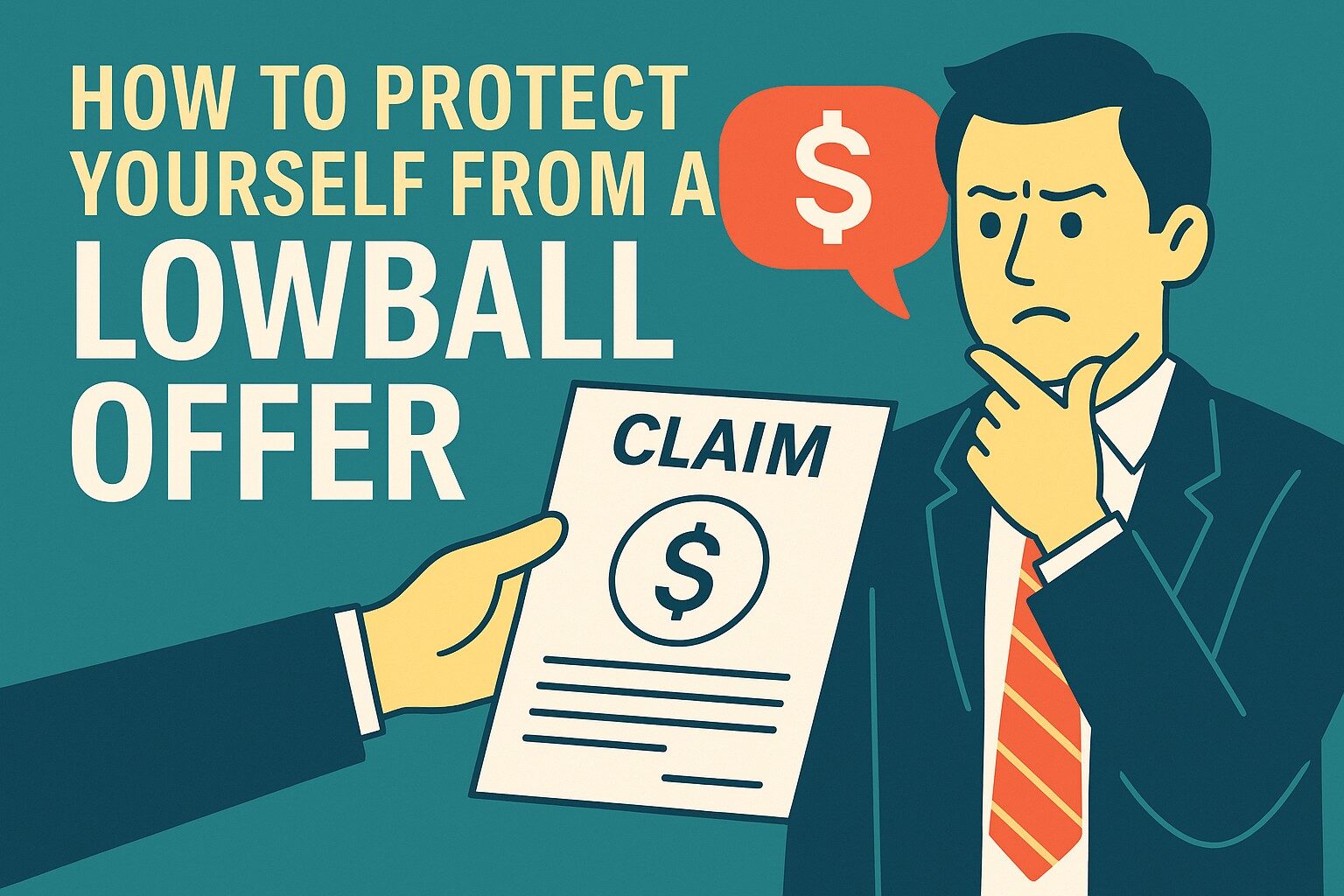You get a call, a check is “ready,” and the adjuster wants to close your claim. Fast money can feel like relief, but quick offers are often low because your full costs aren’t known yet. Here’s how to spot a lowball offer and push for a fairer result.
Signs the offer is probably low
- It lands before your treatment plan is clear or you’ve reached maximum medical improvement (MMI).
- It ignores future care your doctor already recommended.
- It’s based only on early bills and a short adjuster summary. The National Association of Insurance Commissioners explains why complete documentation matters and how the auto claims process actually works: NAIC — What You Should Know About Filing an Auto Claim.
- It comes with pressure to sign a broad release right away. Once you sign, the claim is usually over.
Why insurers move quickly
Insurers use internal guidelines and software to control costs. Closing files early reduces their uncertainty, not necessarily yours. See the NAIC’s overview of what to expect and the importance of documentation:
- NAIC — What You Should Know About Filing an Auto Claim
- NAIC — Navigating the Claims Process: Recover and Rebuild
What to do before you respond
- Get your medical path in writing. Ask your provider what care is still ahead and why.
- Collect the paper trail. Bills, EOBs, prescriptions, mileage to appointments, employer notes on time missed. The NAIC stresses complete documentation: NAIC filing an auto claim.
- Value future costs. If your doctor anticipates more visits or therapy, include a simple projection.
- Check your coverages. Tennessee’s minimum liability limits are only 25/50/25. That protects others, not you. Details here: TN Dept. of Revenue — Why You Should Have Insurance.
Ask the adjuster for specifics
- “What medical records and bills did you use for this offer?”
- “What, specifically, did you exclude and why?”
- “Does your number include the future care my doctor recommended?”
- “Please send the evaluation notes you are allowed to share so I can see where we differ.”
Keep releases narrow
Adjusters sometimes send blanket medical authorizations that allow access to unrelated history. You can offer targeted records instead. The U.S. Department of Health and Human Services explains what HIPAA authorizations must include and how they can be limited:
Know your Tennessee deadlines and options
Tennessee’s general personal-injury statute of limitations is one year from the date the claim accrues:
If you hit roadblocks with an insurer, you can file a complaint with the Tennessee Department of Commerce and Insurance:
If the first offer is low, counter with evidence
A clean counter works better than a speech. Include:
- Short summary of injuries and a timeline of care
- Itemized bills and receipts
- Employer letter confirming time missed or duty limits
- Your doctor’s note on ongoing needs
- A specific counter amount with a short explanation
Again, NAIC’s consumer guidance is a good reference for what adjusters need to see:
Quick checklist
Not saved
Saved locally in your browser only.
Closing
If you or a loved one was injured and the offer feels too quick or too low, we’re here for you. We’ll review what’s missing, explain your options in plain English, and help you take the next step.
Call 615-244-2111 or reach out through our online contact form.Because we care,Stillman & Friedland







